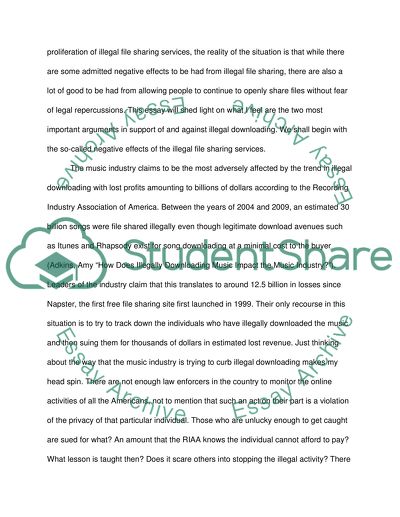Cite this document
(“An Argument in Support of Illegal Downloading Essay”, n.d.)
An Argument in Support of Illegal Downloading Essay. Retrieved from https://studentshare.org/miscellaneous/1464057-illegal-downloading
An Argument in Support of Illegal Downloading Essay. Retrieved from https://studentshare.org/miscellaneous/1464057-illegal-downloading
(An Argument in Support of Illegal Downloading Essay)
An Argument in Support of Illegal Downloading Essay. https://studentshare.org/miscellaneous/1464057-illegal-downloading.
An Argument in Support of Illegal Downloading Essay. https://studentshare.org/miscellaneous/1464057-illegal-downloading.
“An Argument in Support of Illegal Downloading Essay”, n.d. https://studentshare.org/miscellaneous/1464057-illegal-downloading.


